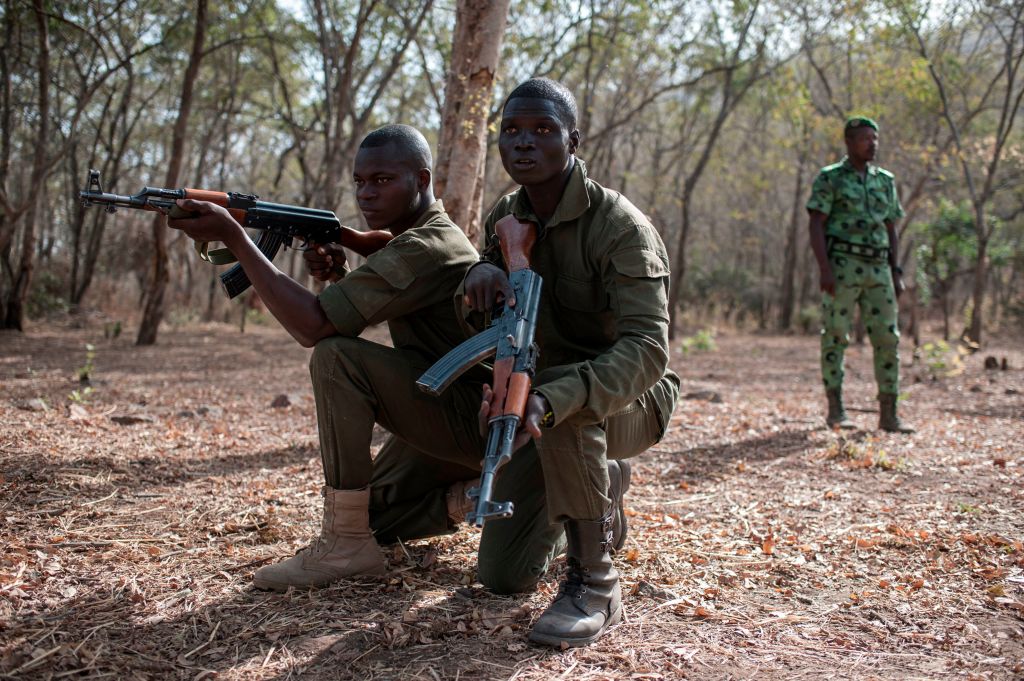ADF STAFF
The W National Park is an 8,000-square-kilometer nature preserve that straddles the borders of Benin, Burkina Faso and Niger. It is home to an abundance of wildlife, including aardvark, baboon, endangered cheetah, African bush elephant, hippopotamus, African leopard, West African lion and warthog.
Its most dangerous denizens, however, are the violent extremists who have established bases in the park since 2020 after previously using it for smuggling routes.
“The park has become a sort of headquarters for the jihadist groups,” Crisis Group analyst Ibrahim Yahaya Ibrahim said in an April 17 video.
“We can see that the park serves as a space from which they organize their expansion into other areas, in all directions to the north, south and west. It has also become a place from which they organize attacks in other areas.”
The W and two adjacent national parks, Pendjari and Arly, comprise West Africa’s largest protected wilderness with 1.7 million total hectares. Its dense forests combine with the region’s porous borders to give militants easy access.
The parks have been closed since 2019, when terrorists kidnapped two French tourists in Pendjari and killed their local guide.
In 2023, the Beninese Army said the country experienced the sharpest rise in extremist militant attacks in Africa. In December, two Soldiers on surveillance duty were killed by an improvised explosive device in the town of Karimama, near the border with Niger. The Beninese military is concerned primarily with Jama’at Nusrat al-Islam wal-Muslimin, an al-Qaida affiliate; and the Islamic State-Sahel group, both of which are responsible for killing thousands of people and driving millions more from their homes.
Violent extremists have displaced more than 2 million people in Burkina Faso alone — about 10% of the population.
“The Burkina Faso military have long since abandoned the area just north of the border,” Beninese Col. Faizou Gomina told New Lines magazine. “As a result, jihadists and criminal gangs have formed large bases, which they use to stage attacks into our sovereign territory.”
Ibrahim says extremist groups have capitalized on local grievances and competition for natural resources, such as water and land, which has forced more farmers and herders into the park.
“The jihadists are trying to impose a new form of governance, a code of conduct for women and men and dress codes for women,” he said. “They prevent women from going to the market, they use physical violence to impose this code of conduct.”
When the militants established their bases, they welcomed herders to live inside the park.
“This facilitated collaboration between the jihadist groups and the nomadic herders,” Ibrahim said, adding that the militants’ growing ties to local communities undermines the efforts of the Beninese military as well as park rangers.
Officials at the W let locals fish the Alibori River, graze their animals in buffer zones around the park, and gather plants and honey from the forest. In turn, rangers encourage locals to pass along helpful information to the military.
African Parks, a South Africa-based nongovernmental organization, has managed W National Park since 2020. The group reported several attacks in 2023 that resulted in the deaths of one ranger, several Beninese Soldiers and government officials. The increasing violence prompted Africa Parks to reevaluate its entire operation.
“Withdrawing would have in many ways been the easier option,” the organization wrote in an April 17 blog post.
African Parks pulled out of the W’s most dangerous areas, relocated all nonessential staff, reduced road use and gave rangers additional training in identifying IEDs. The Beninese Army deployed troops along the borders with Burkina Faso and Niger to reduce further militant infiltration.
“For these solutions to work, it’s imperative that we maintain good coordination and clarity on roles and responsibilities,” African Parks stated. “Most importantly, close, positive engagement was prioritized and maintained with local communities who play a vital role in supporting security within their regions.”
Ibrahim said that securing the park won’t solve all of the problems around it. He urged Benin, Burkina Faso and Niger to engage in talks with the extremist groups.
“At present, nothing is possible inside the park because of the jihadist groups’ occupation,” he said. “Military action may be necessary. Military action could also be accompanied by dialogue.”

